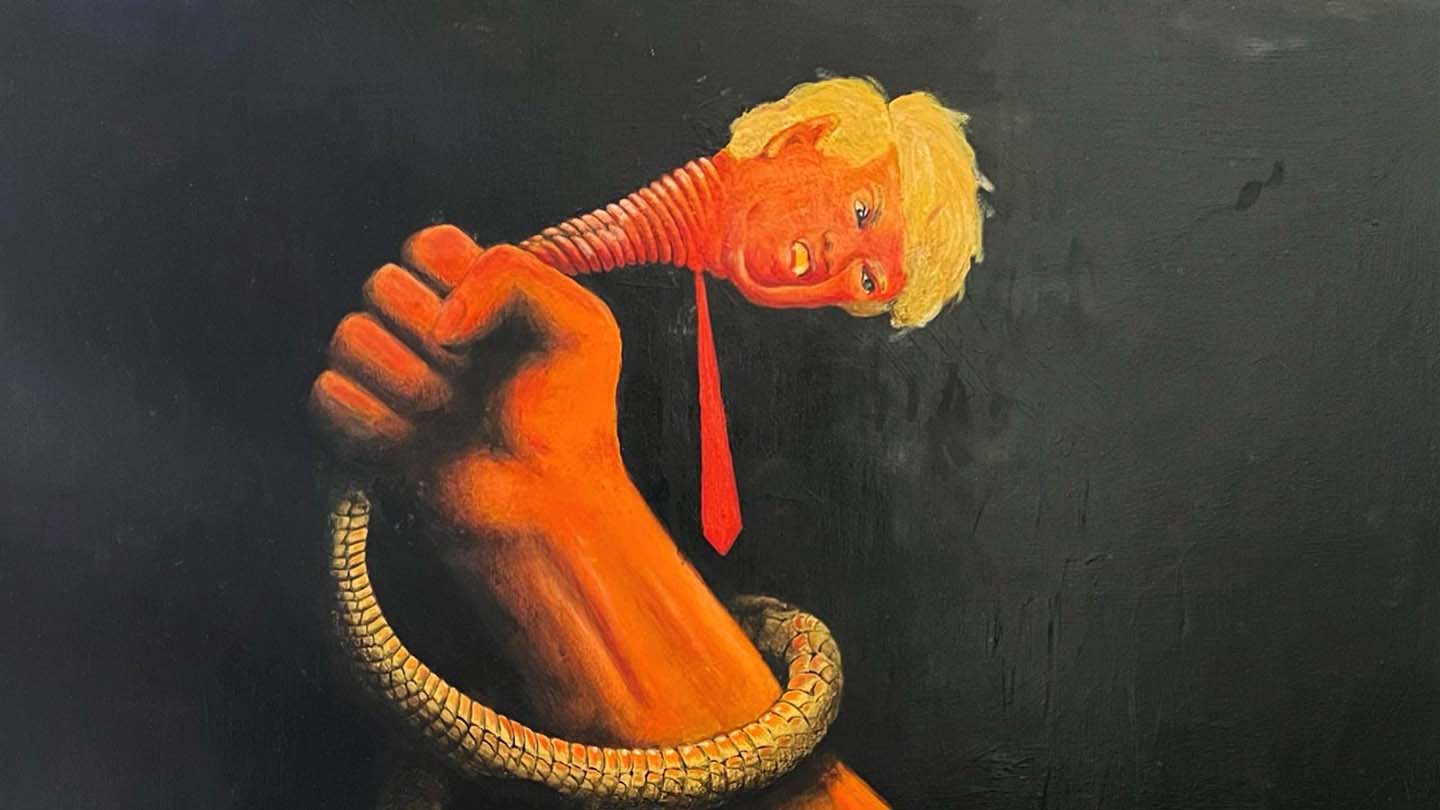The Rev. Barber and Other Faith Leaders Issue a Bold Call to Reject Christian Nationalism
The Rev. Dr. William Barber II and allies reject “divisive cultural wedge issues” in favor of “a public theology that is good news for all people.”
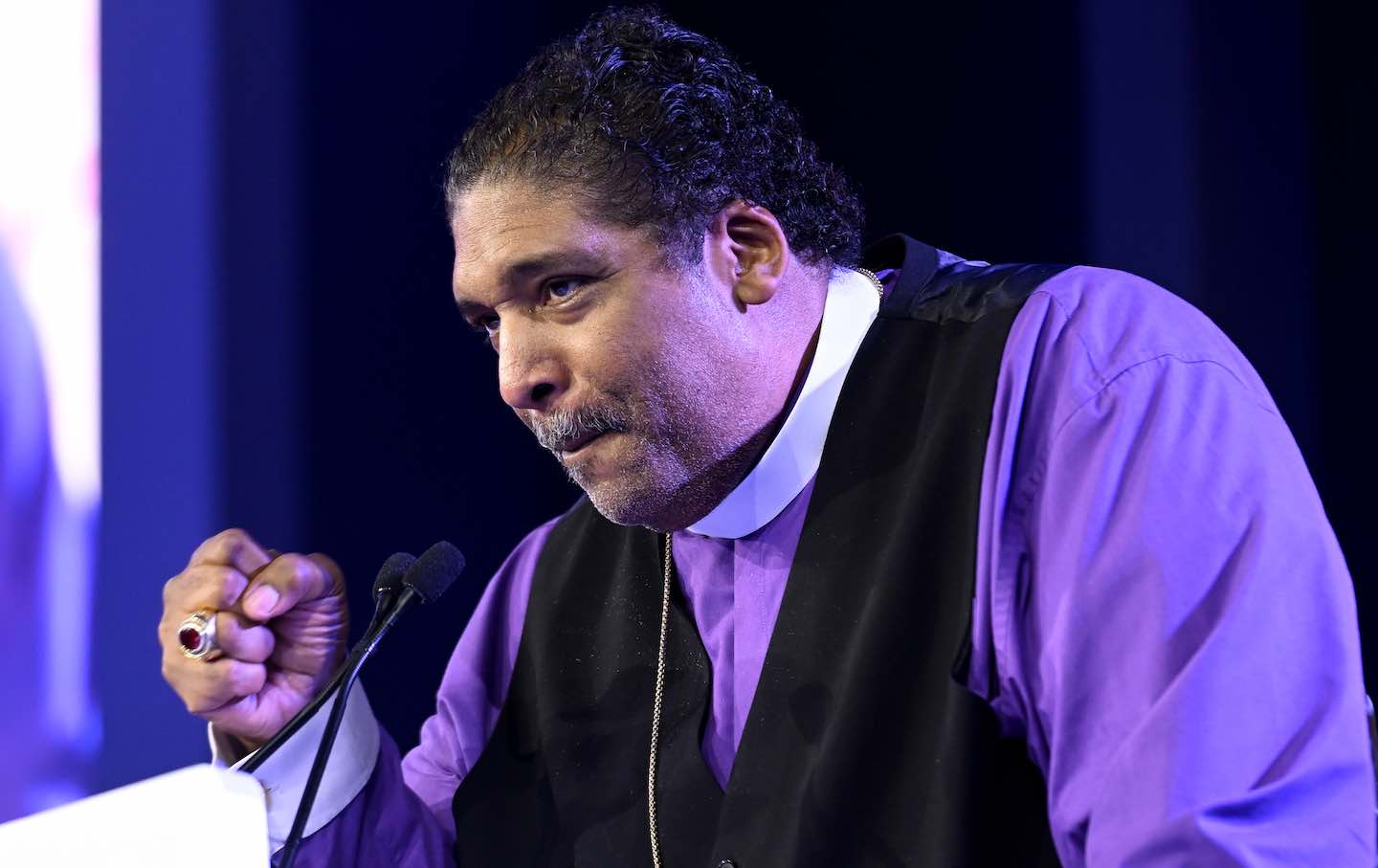
Bishop William J. Barber II speaks onstage during the Clinton Global Initiative September 2023 Meeting at New York Hilton Midtown on September 19, 2023, in New York City.
(Photo by Noam Galai / Getty Images for Clinton Global Initiative)“Heavyweight challenges require more than lightweight theology,” says the Rev. Dr. William Barber II, who is leading the charge for a prophetic Christianity that declares, “Justice and mercy is the very message that the 21st-century church needs to be preaching.”
This message, preached by the founder of the “Moral Mondays” movement preached at the opening of the inaugural conference of the Yale Divinity School’s Center for Public Theology & Policy, which Barber directs, is in stark contrast to the message of the extreme-right-wing Christian nationalist movement that Barber is calling on pastors, churchgoers, and political leaders to reject as antithetical to Christian values.
Barber has for many years been an outspoken critic of Christian nationalism. Several years ago, the longtime Disciples of Christ pastor, NAACP leader, and cochair of the Poor People’s Campaign: A National Call for a Moral Revival told an interviewer,
To suggest that if you’re against abortion, you’re against women’s right to choose, you’re for guns, for prayer in schools, for tax cuts, a Republican, then you have taken the moral position that is modern-day heresy. And we have to challenge it. But we’re not just going to challenge it just emotionally. We’re saying if you want to have a discussion about morality from a Biblical standpoint, then let’s have a real one.
Now, that challenge has come, in the form of the “New Haven Declaration of Moral and Spiritual Issues in the 2024 Presidential Election,” a call to action issued at the close of the conference. At a time when a growing number of Republican politicians and grassroots activists are identifying as Christian nationalists, and advocating policies that identify the United States as a Christian nation—rather than a diverse and pluralistic land with freedom of religion for all—the statement’s signers promise to “launch a season of preaching the moral issues of living wages and union rights, healthcare and ecological justice, an end to the spilling of innocent blood, a reimagination of criminal justice, and the protection and expansion of voting rights and equal protection guarantees.”
Held April 7–9 in New Haven, Connecticut, the conference drew clerics, scholars, academics, and activists from across the country with the aim of providing faith leaders and their allies with the tools to engage in the battle for the soul of the nation. Panel discussions and presentations featured experts on right-wing extremism, such as Anne Nelson, author of Shadow Network: Media, Money, and the Secret Hub of the Radical Right, and Nancy MacLean, author of Democracy in Chains: The Deep History of the Radical Right’s Stealth Plan for American. Election law specialist Marc Elias spoke about fighting voter suppression in the courts. LaTosha Brown, cofounder of the voting rights group Black Voters Matter, described campaigns to empower marginalized predominantly Black communities. The Rev. Dr. Richard H. Lowery, an ordained Disciples of Christ pastor and biblical scholar who served as dean of the Lexington Theological Seminary, offered a lesson on how the Book of Genesis provides a framework for democracy.
The mix of policy, strategy, and scripture distinguished the conference from traditional academic gatherings, as did the gospel music that began each day’s session. Several panels and presentations focused on getting to a deeper understanding of Christian nationalism, one that frames the discussion in moral terms that cross traditional partisan and ideological dividing lines. “The language of conservative and liberal does not fit this moment,” Barber explained. “I don’t care if you are liberal or conservative. I care about whether you stand for the least of these.”
That’s a message that is writ large in the New Haven Declaration.
The declaration warns that “a well-funded, coordinated political movement has co-opted our faith tradition and is exploiting so-called ‘traditional values’ to undermine democracy and divide people across this land.” And it explains, “This distorted religious nationalism has persuaded many well-meaning Christians to focus on a narrow set of divisive cultural wedge issues while ignoring the real moral issues that are at the heart of our Scriptures and tradition. We repent of not doing more to preach and teach against this misuse of our faith, and we pledge to proclaim in word and deed a public theology that is good news for all people.”
The signers of the New Haven Declaration ground their moral message in historic struggles:
We are not alone. We stand in the great moral tradition of Frederick Douglass, Sojourner Truth, and William Lloyd Garrison, who insisted that abolition was a moral issue; we stand with Ida B. Wells, Reverdy Ransom, and Walter Rauschenbusch, who insisted that concern for the poor was a moral issue; we stand with Francis Perkins, Howard Thurman, and Reinhold Niebuhr, who preached and practiced worker’s rights as a moral issue; we stand with Rosa Parks, Martin King, Dorothy Day, and Pauli Murray, who insisted that equal protection for all people is a moral issue; we stand with John Lewis, Fannie Lou Hamer, and James Reeb, who spilled their blood in the nonviolent struggle for voting rights as a moral issue.
We are surrounded by a great cloud of witnesses, and we are moving forward together to represent the majority of people of faith in this nation who want a democracy where everyone can thrive.
The agenda is rooted in broadened faith, rather than in the narrow confines of partisan politics. “From the top of the ticket to local state house and judicial races, it is not the job of pastors to tell anyone for whom to vote,” the document argues. “But preachers do have a responsibility to make clear how the tradition of Jesus and the prophets speaks to the world today. We must challenge our congregations and the wider public to choose carefully and wisely which candidates for public office best represent our true moral values.”
The initial signers of the declaration include Barber, Yale Divinity School Dean Greg Sterling, and a number of prominent faith leaders, such as the Rev. Teresa Hord Owens, who serves as general minister and president of the Christian Church (Disciples of Christ) in the US and Canada; Bishop Yvette Flunder, the presiding bishop of the Fellowship of Affirming Ministries; and the Rev. Sofía Betancourt, the president of the Unitarian Universalists Association. Another signer is Shane Claiborne, a cofounder of Red Letter Christians, the faith-based group with a mission of “combining Jesus and justice.”
The New Haven declaration echoes many of the messages that Barber has carried forward over the years as one of the nation’s most prominent preachers and activists on behalf of economic, social, and racial justice. What distinguishes the document is its ambition. With a call to conscience at a critical juncture in the American journey, Barber says, “We have to force the nation to make a moral choice.”
Thank you for reading The Nation!
We hope you enjoyed the story you just read, just one of the many incisive, deeply-reported articles we publish daily. Now more than ever, we need fearless journalism that shifts the needle on important issues, uncovers malfeasance and corruption, and uplifts voices and perspectives that often go unheard in mainstream media.
Throughout this critical election year and a time of media austerity and renewed campus activism and rising labor organizing, independent journalism that gets to the heart of the matter is more critical than ever before. Donate right now and help us hold the powerful accountable, shine a light on issues that would otherwise be swept under the rug, and build a more just and equitable future.
For nearly 160 years, The Nation has stood for truth, justice, and moral clarity. As a reader-supported publication, we are not beholden to the whims of advertisers or a corporate owner. But it does take financial resources to report on stories that may take weeks or months to properly investigate, thoroughly edit and fact-check articles, and get our stories into the hands of readers.
Donate today and stand with us for a better future. Thank you for being a supporter of independent journalism.
Thank you for your generosity.
More from The Nation
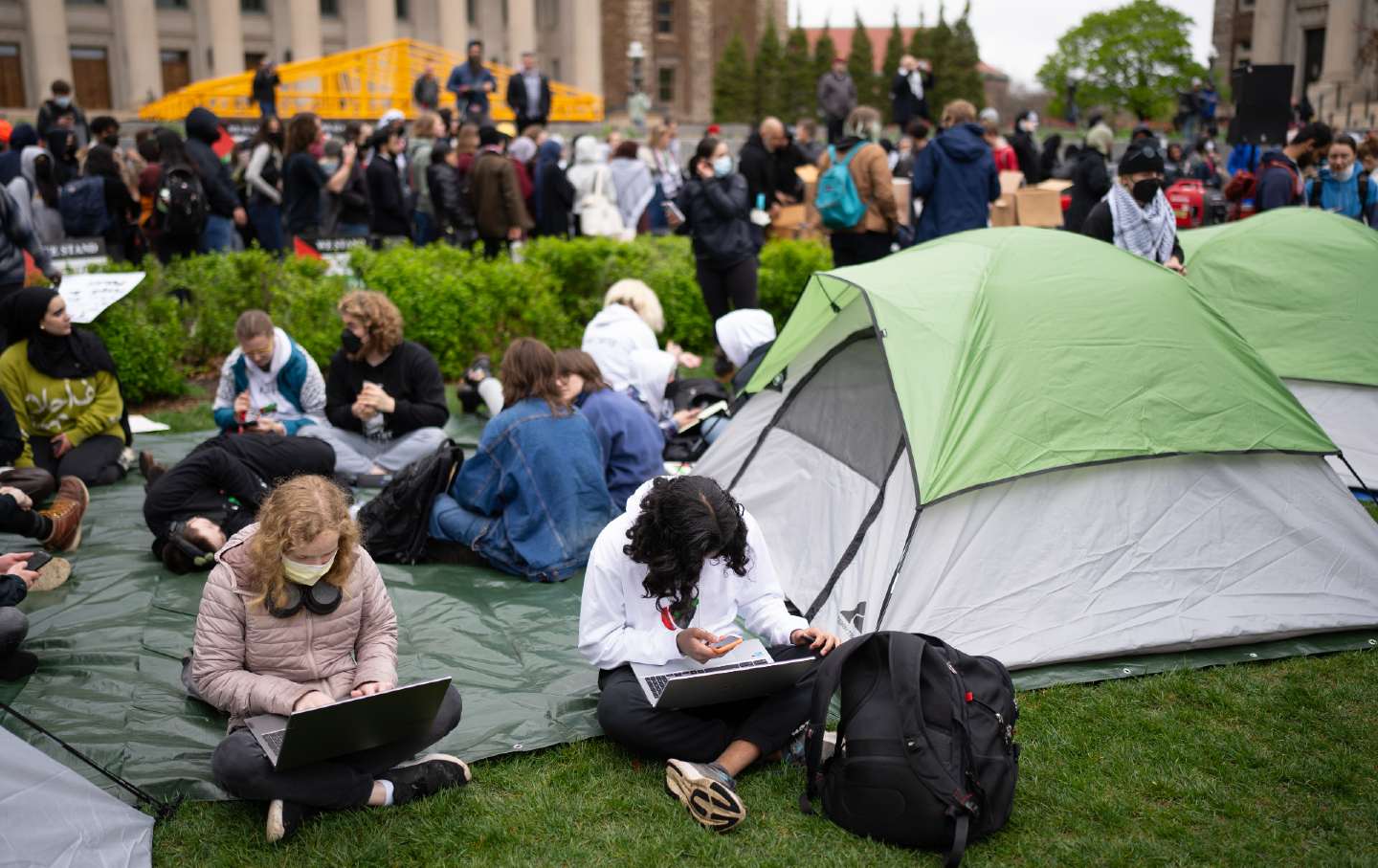
The Abolitionist Roots of Anti-War Encampments The Abolitionist Roots of Anti-War Encampments
From Minneapolis to Manhattan, the encampments now spreading across college campuses are built on the same principles as abolitionist spaces like George Floyd Square.
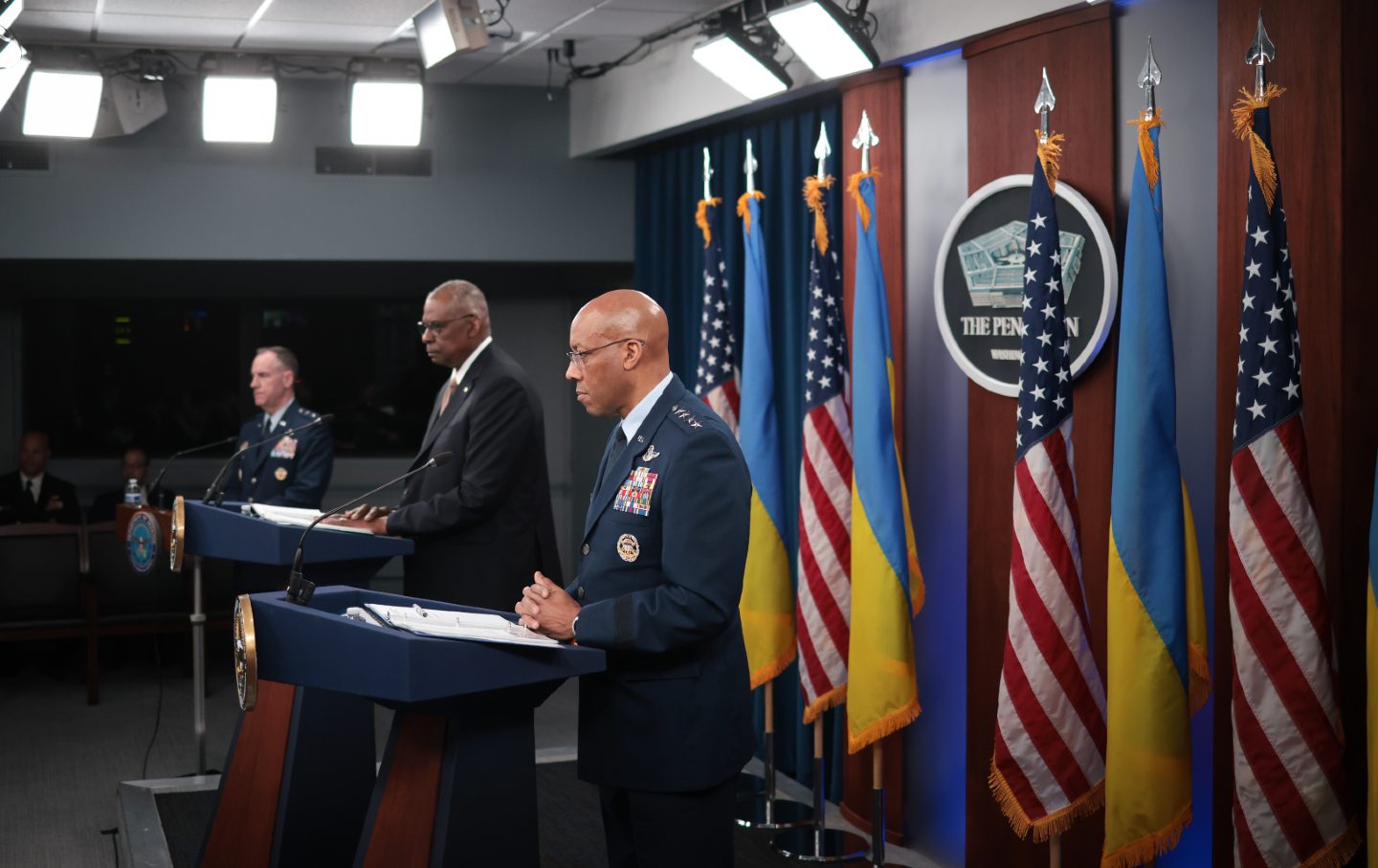
The Ukraine Aid Package Heightens the Risk of Escalation The Ukraine Aid Package Heightens the Risk of Escalation
The passage by Congress of the latest aid package to Ukraine was met with cheers, but there is ample reason for caution.
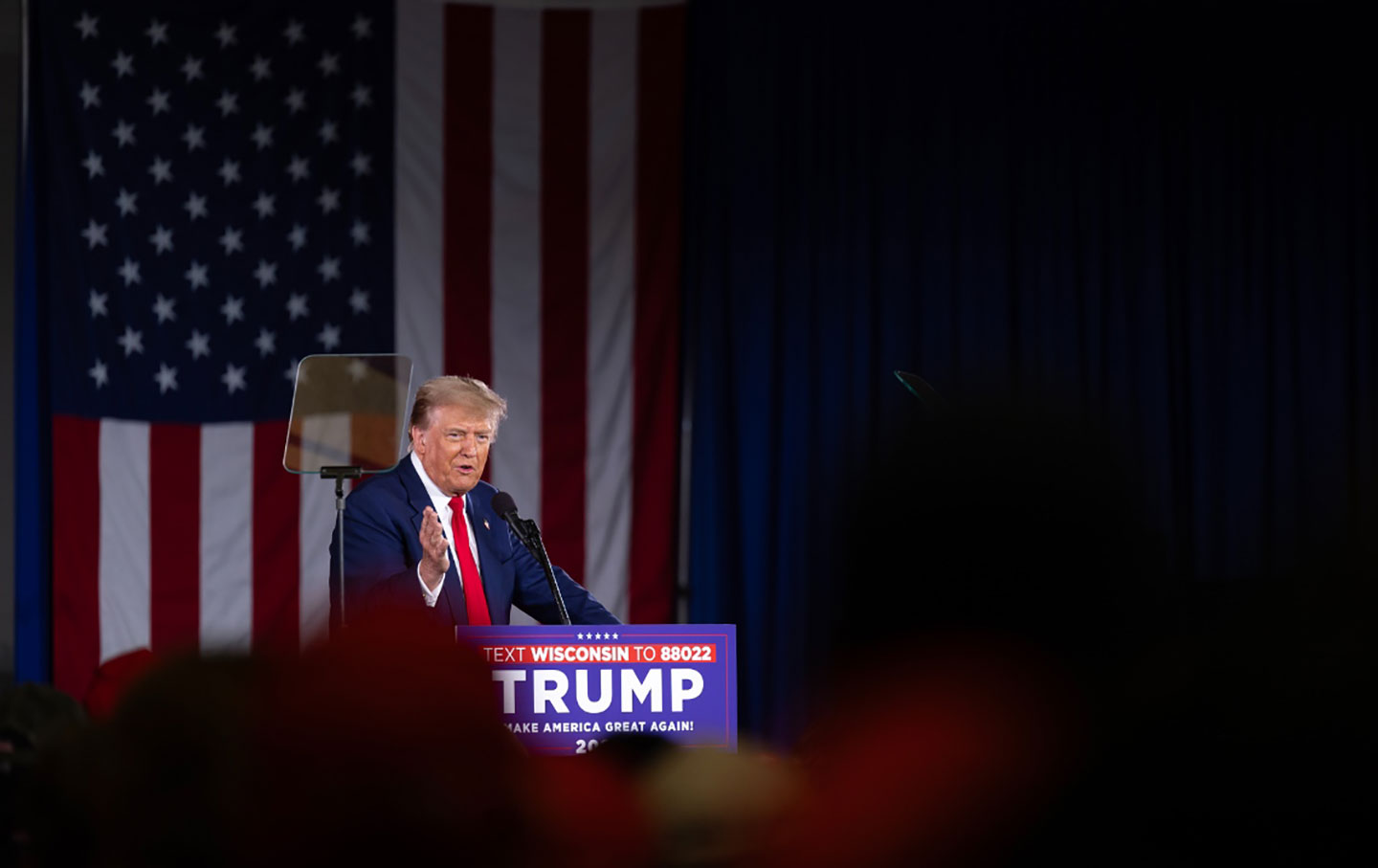
Donald Trump Is Scared of Women Voters on Abortion Donald Trump Is Scared of Women Voters on Abortion
He evaded Time magazine’s abortion questions repeatedly. What can we learn? He will do anything that benefits him.
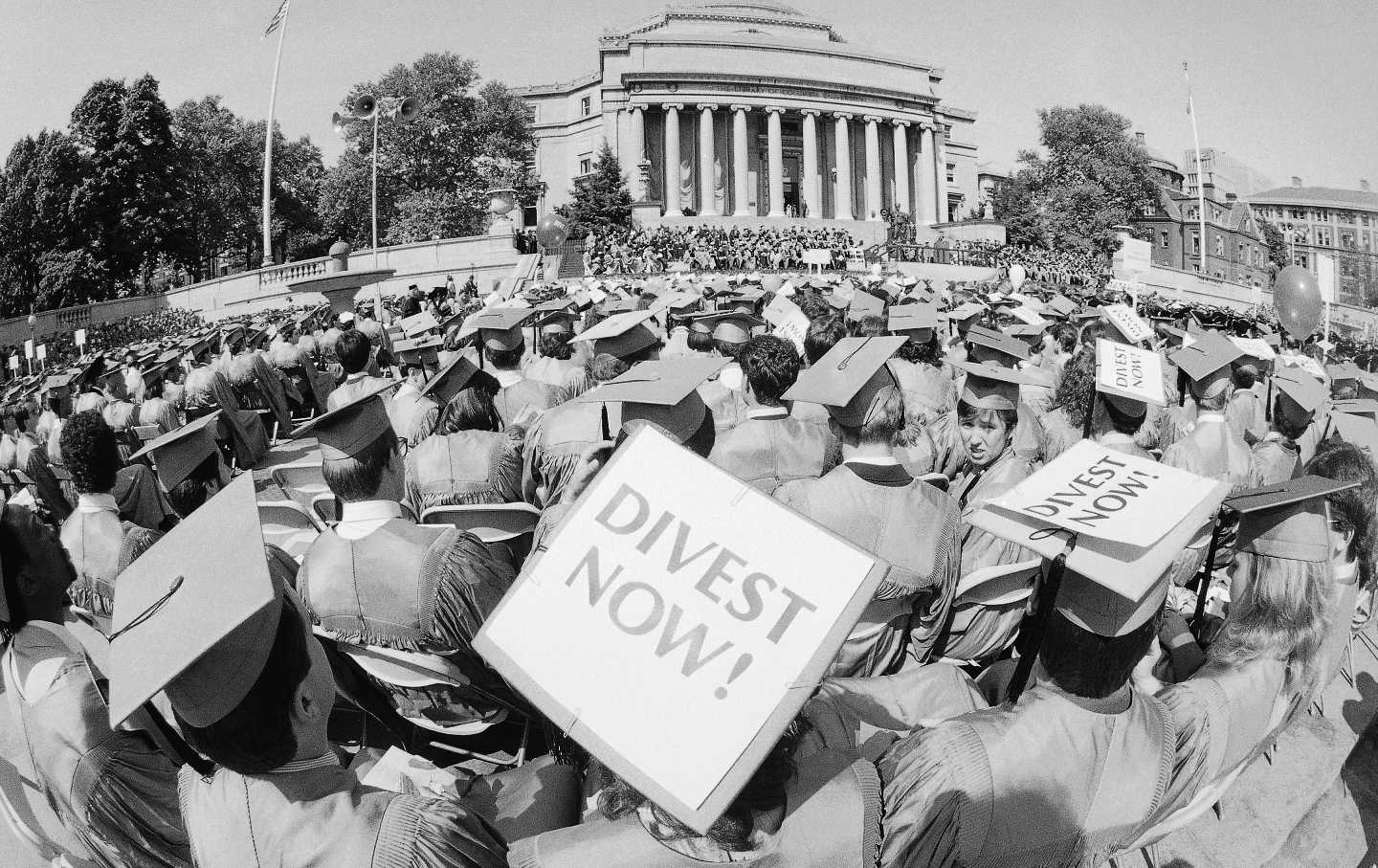
When We Occupied Columbia in 1978, the University Didn’t Call the NYPD When We Occupied Columbia in 1978, the University Didn’t Call the NYPD
Campus administrators met student demands to divest from apartheid-era South Africa. What’s changed?
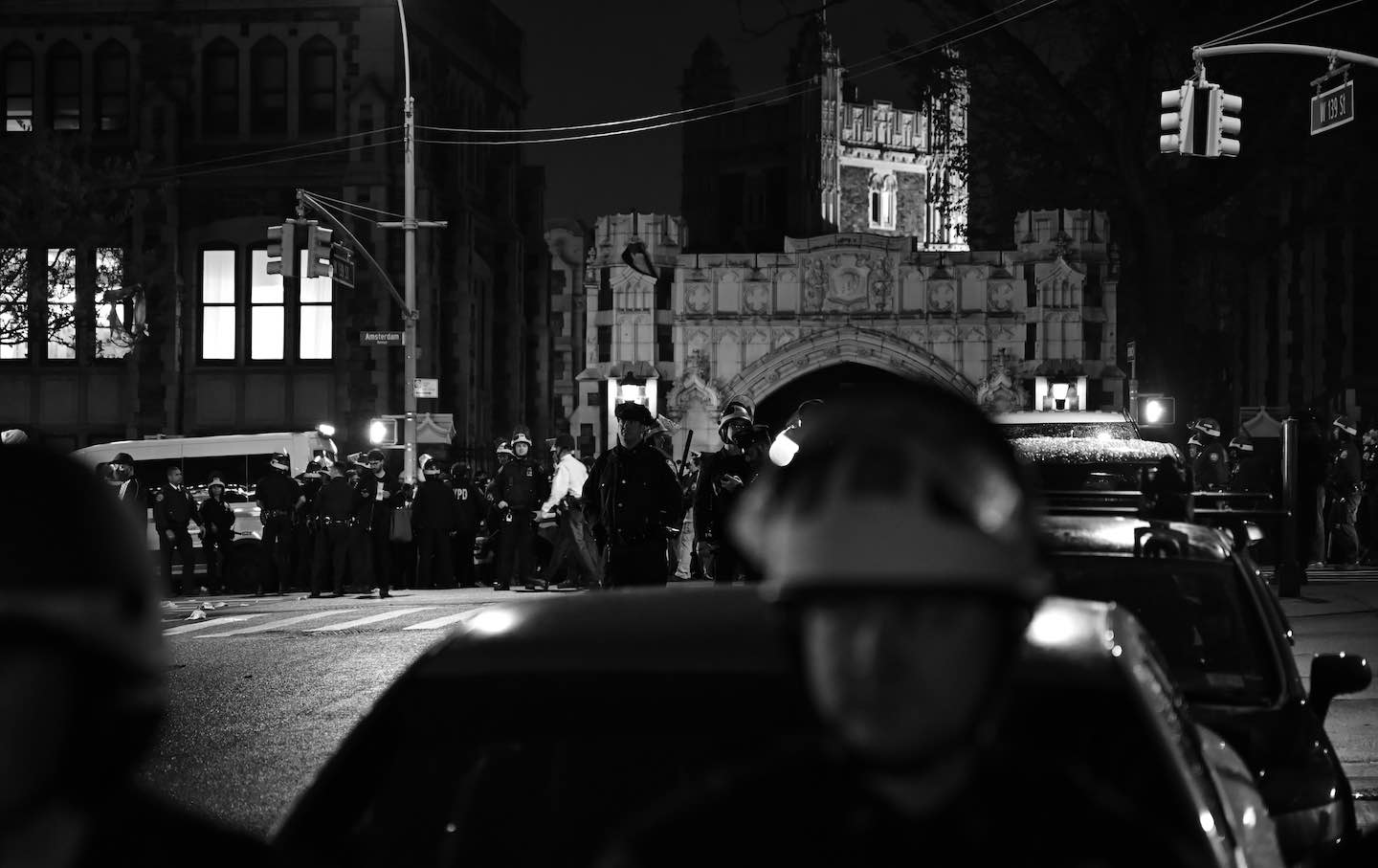
The Police Take City College The Police Take City College
Scores of people were arrested at the City University of New York on Wednesday—a scene "very reminiscent of the 1968 police crackdowns" at Columbia University, said one protester....

